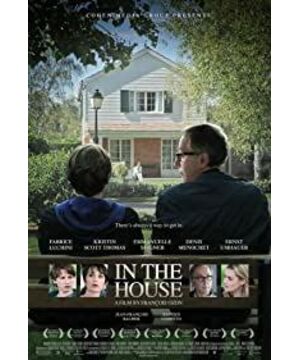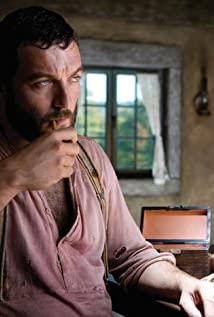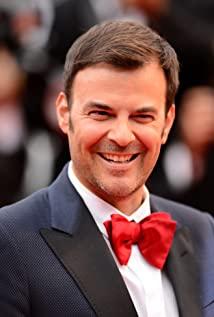Judging from the Hong Kong translation of "Stealing Love and A Fenced Mother", you will think that this is just a feature film full of Oedipus plots. Having no knowledge of Greek tragedy, I prefer to say something else that it reminds me of.
There is no doubt that there is such a thing as the routine of the script, just like the objects in the poems always have fixed symbols. When I think of the analysis of ancient poems that I was familiar with during the college entrance examination, a completely unfamiliar poem, as long as bamboo, lotus, pine and cypress appear in the sentence, the answer must contain words such as steadfastness, unyielding, noble, sturdy, and stalwart. Although solidification is annoying, if there is no consensus, it will be difficult for people to understand. Therefore, people whose purpose is not to make people understand, but to express themselves, are particularly mysterious. Such as David Lynch, such as apprehension.
Of course, this film can't escape the routine. But because it's a bit complicated, you can't simply classify it as homosexuality, teacher-student love, or Oedipus. Therefore, it is better to look at it from another angle and avoid the so-called cliché or the feeling of dog blood.
As a typical example of tragedy, the tragedy of Oedipus' fate lies in its inevitability, that is, no matter how you take the countless roads, you cannot escape this end. But this was not the case with the French teacher named German. When Claude was teaching him his second composition, his wife reminded him that he should tell the principal.
How can it be so serious? "He's just rebellious, displeased with anything, but that's all! What could be wrong with that? Better than going down the street and setting the car on fire!"
If German anticipated that the boy would end up costing him everything, he It is bound to take a big mouth at this time. Then go and report him to the principal. Bole, who wanted to be a smart eye and a talented man, unfortunately brought disaster to himself. The people in the story who are willing to take the risk are either in a desperate situation or living smoothly. When a teenager encounters an adult who guides him and can't take care of him out of control, the result is bound to be tragic. The same goes for "The Nazis" and "The Reader."
But I don't mean to say that's how it works.
There are always entanglements between teenagers and married old women in movies, such as "A Different Sky" and "The Graduate". Taboo is a seductive word, and the reason why this relationship is more passionate than ordinary love may also be that both parties happen to be at the commanding heights of sexual desire. When an insatiable wife and a teenage boy are in the same room, there is no smell in the air except for a high concentration of hormones. This is also the reason why it must not last long, and physical needs are mistaken for love.
I thought it was fortunate that the film only ended with kissing, so as not to fall into the rut, and then German's imaginary bed scene broke it again. Actually, I don't think it's necessary. When his wife complained to him or even suspected that he had turned a corner, wasn't it a hint of future departure?
If it is the yearning for his mother and the desire for a complete family that prompted him to approach the Raphael family, this can be regarded as a reasonable explanation for the time being. I always thought that the emotions in the film were just incentives to build relationships between characters.
With the help of Claude's snooping and mocking of an ordinary family, I think the director is mocking everyone's life. Claude spied on his friend's life and then wrote a novel. While reading the novel, German also spied on Claude and his friends. When he himself wrote the novel as part of being spied on, can he still be so calm?
Just like the Truman who lives in someone else's camera, his life is completely monitored and controlled by that "God". Kafka wrote a passage about the people in the tram, the people hanging from the handle and shaking as the car traveled. People often do not feel the existence of shackles and mistakenly believe that their actions are active. Some people will never be free because they think they are free. The same goes for those who stare at Truman's every move in front of the TV, thinking they are looking down on other people's lives, but aren't their expressions also manipulated by Truman.
"He always sits in the last row in class."
"You used to be like that, right."
"That's the best position, where you can see everyone and everyone can't see you."
This sentence should be the core of the whole film. The peeping angle is thus determined. Whether looking down at the villa's chair from the crack of the door or from the hillside. The result has been written in the poem, "Even if you are barefoot, the rain cannot dance."
View more about In the House reviews










